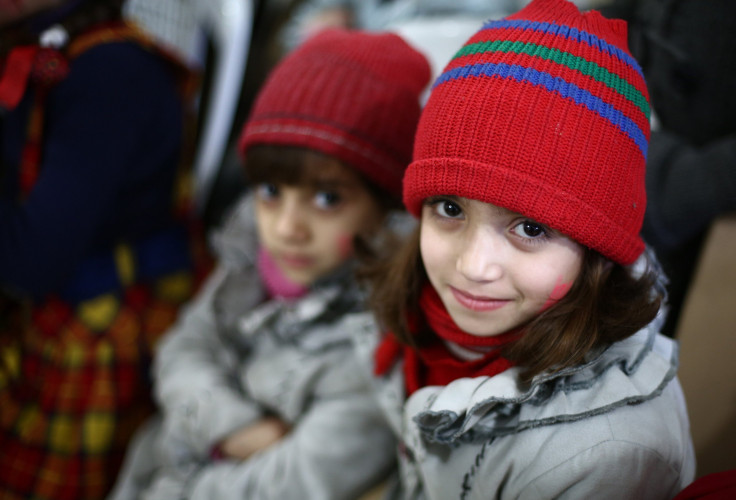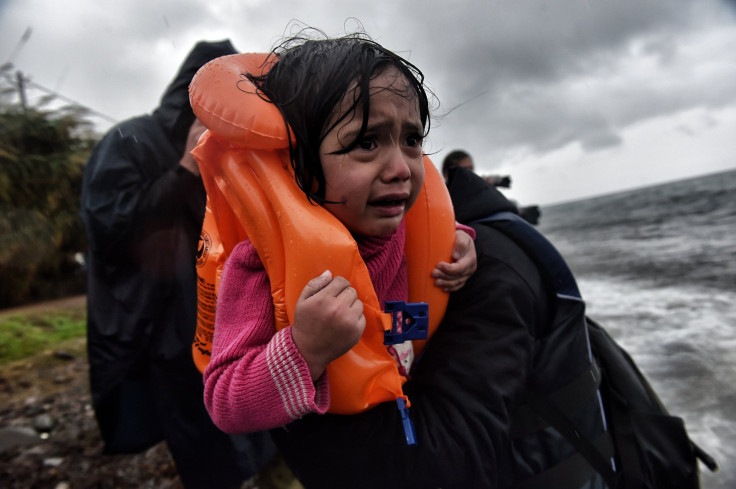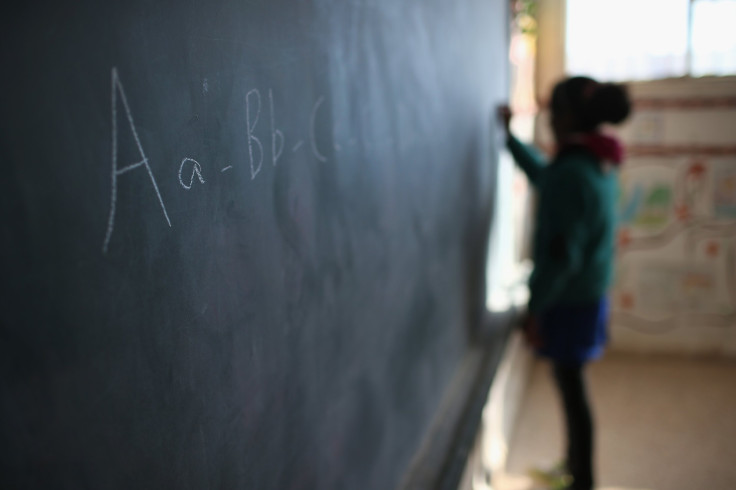Amid Refugee Debate, Unaccompanied Syrian Children Have Willing US Families Ready To Foster, Experts Say

After the haunting image of a drowned Syrian refugee boy lying facedown on a Turkish beach emerged in September, the phone lines at the Lutheran Immigrant and Refugee Service started ringing virtually nonstop with a much higher volume of calls than usual. Dozens of American parents and families were calling the Baltimore-based voluntary resettlement agency asking if they could foster Syrian refugee children in need of homes.
“The flood of parents who wanted to foster was astonishing and heartwarming,” Kimberly Haynes, director of child services at the agency, said. “The reality on the ground is, people are empathetic and really have a heart for wanting to provide a home for these kids. We’ve seen a spike in foster-family interest.”
Those sentiments, however, aren’t reflected in legislation passed Thursday in the U.S. House of Representatives. The bill, an effort to halt President Barack Obama’s program allowing Syrian refugees into the United States until key national security agencies confirm they don’t pose a security risk, was passed by 242 Republicans and 47 Democrats. Last week's terrorist attacks in Paris, for which the Islamic State group claimed responsibility, have stirred fears that radicalized youth will infiltrate the flow of Syrian refugees accepted into the United States. A Syrian passport was found near the body of one of the suicide bombers involved in those attacks.
In reality, experts said, few Syrian children will be accepted for refugee status in the United States, and it could take years before they are resettled on American soil, due to extensive security screening. The process is even more difficult for those who arrive without parents or family.
More than 4 million Syrians -- half of them children -- have fled the war-torn Middle East country since conflict broke out nearly five years ago, the United Nations Children’s Fund said in September. The agency reported in 2014 that 8,000 children had fled Syria without their parents -- a number that has likely surged since violence intensified this year. In September, Obama called for his administration to accept 10,000 Syrian refugees into the country during the current fiscal year, though he did not specify how many would be children.

Republican New Jersey Gov. and presidential hopeful Chris Christie said the U.S. should not accept any new Syrian refugees, not even young orphans. "I do not trust this administration to effectively vet the people who are proposed to be coming in," he said in an interview Monday with radio host Hugh Hewitt. When asked if he would make an exception for "orphans under the age of 5," Christie said no.
"The fact is that we need appropriate vetting," he said, "and I don't think orphans under 5 ... should be admitted into the United States at this point. But, you know, they have no family here. How are we going to care for these folks?"
Republican Texas Sen. Ted Cruz warned that Islamic State group militants would be among those granted asylum in the United States. “It is the height of lunacy for a government official to welcome in tens of thousands of refugees when we know that among them will be ISIS terrorists,” he said Wednesday, using another name for the extremist organization.
Obama has fired back at Republicans for suggesting refugees posed a security threat, saying the GOP was afraid of “widows and orphans.” However, most Syrian minors are actually applying for asylum in Europe rather than the United States because of the continent’s proximity to the conflict zone. Hundreds of thousands of Syrians have landed on European shores in recent weeks, risking their lives for a chance at a better life overseas. The number of unaccompanied asylum-seeking children accepted into the United States is also minimal because the Unaccompanied Refugee Minors Program is smaller and receives less funding compared with other federal resettlement programs, experts said.
“It’s a much tinier, tinier program. You’re talking less than 500 children a year, and that’s sad,” Haynes said. That number represents children coming from countries all over the world. Out of the 10,000 Syrian refugees who could come to the United States this year, she said, unaccompanied minors might make up less than 1 percent. “It’s a difficult process. It takes international will, education, local will and desire. This program is not always considered the primary,” she said.
Unaccompanied minors applying to seek refuge in the United States undergo a completely different process than adults and families, and the challenge of integrating them is more difficult, as they need housing, education and specialized support services. The U.S. State Department has cooperative agreements with nine domestic resettlement agencies and just two that deal with unaccompanied minors, including the Lutheran Immigrant and Refugee Service. Before arriving on American soil, these children must pass a stringent security screening process, which Haynes said can take several years. Cases where a child has a serious medical condition or is under a heightened safety concern might take a year.

Once unaccompanied refugee minors complete the vetting process, they are assigned to one of the two voluntary resettlement agencies, which assess their needs and whether there is an available family willing to obtain guardianship and foster them, or if they are a better fit for an alternative placement, such as a group home. Only then are the children allowed into the United States. The agency introduces them to their new family or home structure and enrolls them in school or other support services. In the past three years, the Lutheran Immigrant and Refugee Service has resettled just two unaccompanied Syrian refugee children and there's only a handful in the agency's current pipeline.
“The process is really long. From the moment they’re identified to when they arrive here could be upwards of three to five years,” Haynes said. “The U.S. refugee resettlement process really is the slowest worldwide. The layers upon layers of steps that need to be taken in order to get one step closer to resettlement are very cumbersome.”
Human services organizations like Access in Dearborn, Michigan, embed trained staff in area schools with Arab refugee and immigrant students to provide language and translation assistance, tutoring and other educational support services. Access also provides recreational activities and mental health services for these children.
“In a lot of circumstances, we’re a buffer between the schools, the teachers and administration, who don’t have resources or support to deal with children of these populations,” said Shannon McEvilly, Access' spokeswoman. “Most of these kids don't have English language skills or they know rudimentary English.”
Daniel Heimpel, a journalist who covers domestic child welfare issues, said there are systems in place for the U.S. to accept refugee children and unaccompanied minors from all over the world. It's not a question of money or capacity; it’s a matter of political will, he said.
“There are children being orphaned by this crisis, and the question is: What as a country do we do for them? It’s not something we’re ill-equipped to do,” said Heimpel, executive director of Fostering Media Connections, a nonprofit journalist group that focuses on child welfare. “Beyond the Islamophobia that runs sort of rampant through the world right now, I think children are children.”
© Copyright IBTimes 2024. All rights reserved.




















